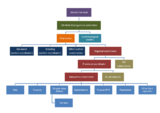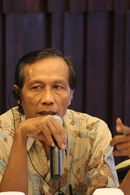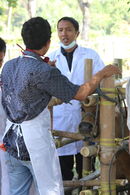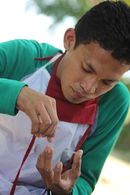How is it managed?
Daftar isi
How is iSIKHNAS managed?
The iSIKHNAS Management Committee - iMC - our 'big picture' leaders
The management of iSIKHNAS is overseen by a committee of senior staff from various directorates general and subdirectorates. This group is responsible for managing some of the priorities, administration and future growth of the system. They have the national goals in mind as well us a clear understanding of the core iSIKHNAS system principles. They help guide the future and support all users with policy, regulatory and administrative leadership. The committee is supported by the technical expertise from the system administrators,"The Champions", and the Epidemiology Advisory group.
The Champions - our system administrators
The Champions are the people who are most involved in the technological aspects of iSIKHNAS - the database, the development of output reports, new functions and additional features. They understand the iSIKHNAS system profoundly and have the specialist skills required to mould the system to meet the needs of all its various users.
The Champions are an enthusiastic and responsive team with a desire to address problems efficiently, meet specific requests and ensure the continued smooth-running of the system.
The Epi Leaders - our epidemiological experts
This important group acts as an advisory group to the Champions and the Management Committee. With their guidance and assistance, iSIKHNAS data will be used to best effect. They will help us to ask the right questions, guide our understanding of the results of analysis and keep an eye on the 'big picture' - the data needs for the whole country. To help us to ask and answer the questions which will inform our decisions and priority setting.
Specialist Coordinators - our coordinators from the subsections
Sections are represented by an appointed coordinator who is responsible for the oversight of the specialist activities such as abattoir reporting, breeding and production and quarantine for example.
Coordinators - our leaders in the field
Each administrative level has to apoint a coordinator and that person will need a certain amount of training in how the system works and how to support users well. Eventually, each region, province and kabupaten will have a designated coordinator. Some areas may choose to share the coordination between two staff members to ensure that one person is not burdened with too much responsibility.
District coordinators play a vital role. The coordinators will support the work of the important people in the field - our field staff - dinas vets and para-vets, inseminators, field Kesmavet staff etc. - and the village reporters (pelsa). These individuals are the source of most data and their continued supported collaboration is vital to the ongoing strength of iSIKHNAS.






